Comparing My Experiences With Two Different Bed Setups
At some point, you’ll want more from your truck; it’s just inevitable. It took me about a week into owning my Tacoma to throw the “I’m just going to keep it stock for a while” out the window. The first modification I looked into was how to make my truck bed better fit my needs. Over time, I would also find that my needs are constantly changing.
I’ve been lucky enough to test out almost every bed configuration for the Tacoma. From soft tops to bed racks to hard tops, I’ve pretty much had them all.
When you look to expand the storage and utility of your truck bed, you’ll usually fall into one of two categories – a bed rack or some form of topper. This article will break down the differences. More specifically, the Cali Raised Overland Bed Rack and the GFC Platform Topper.
To preface, we understand that this is not a dollar for dollar comparison. I am simply comparing the differences. A full loaded setup with either of these (if we include tents, accessories, etc.) positions these in a similar price window.
Find It Online
Installation
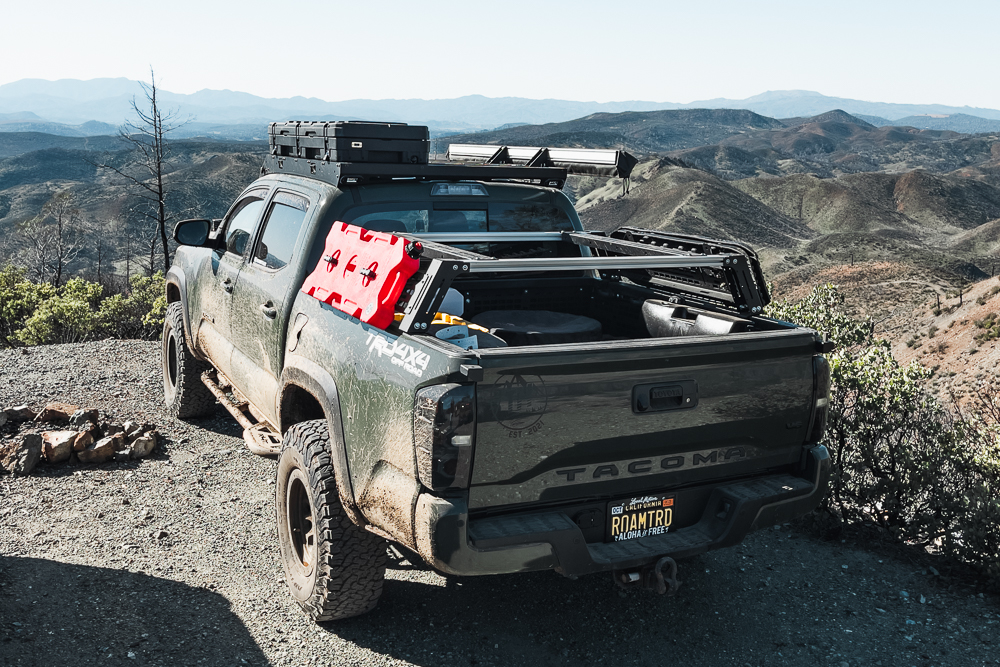
A bed rack is typically shipped straight to your door. With a standard toolbox and a fold-out table, I was able to put it together in just under an hour. The installation itself was pretty straightforward and manageable on my own.
The GFC on the other hand has installation costs that vary depending on where/how you get your topper. The installation can be done at GFC or any of their satellite installation locations. If you ship a unit to a local dealer, make sure you account for that as well. Unlike a bed rack, installing this system isn’t really as feasible on your own. I had mine installed in under 45 minutes at Stellar Built in Sacramento, CA. It would’ve probably been faster if I wasn’t there talking!
Weight
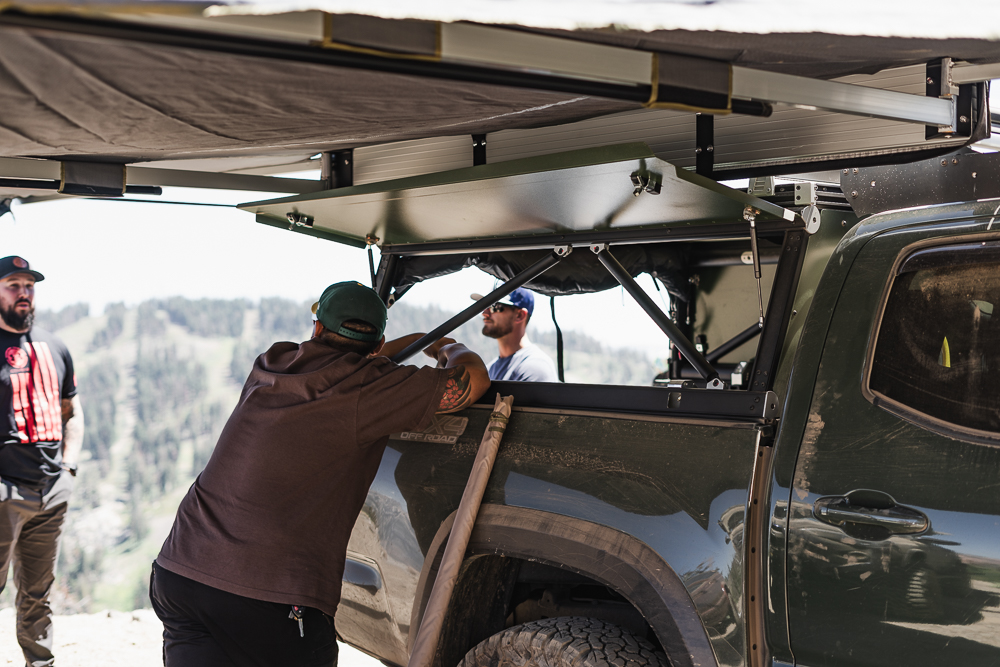
When you add gear or parts to your truck, it’s always a good idea to keep track of the weight.
The Cali Raised mid-height only weighs about 55 lbs. So, adding the rack to your rig (before accessories) won’t affect ride handling or characteristics.
The topper is a little heavier at 135lbs, however, that’s still lightweight for a shell like this. You shouldn’t have to worry about upgrading your leaf springs just yet.
Gear & Accessory Mounting
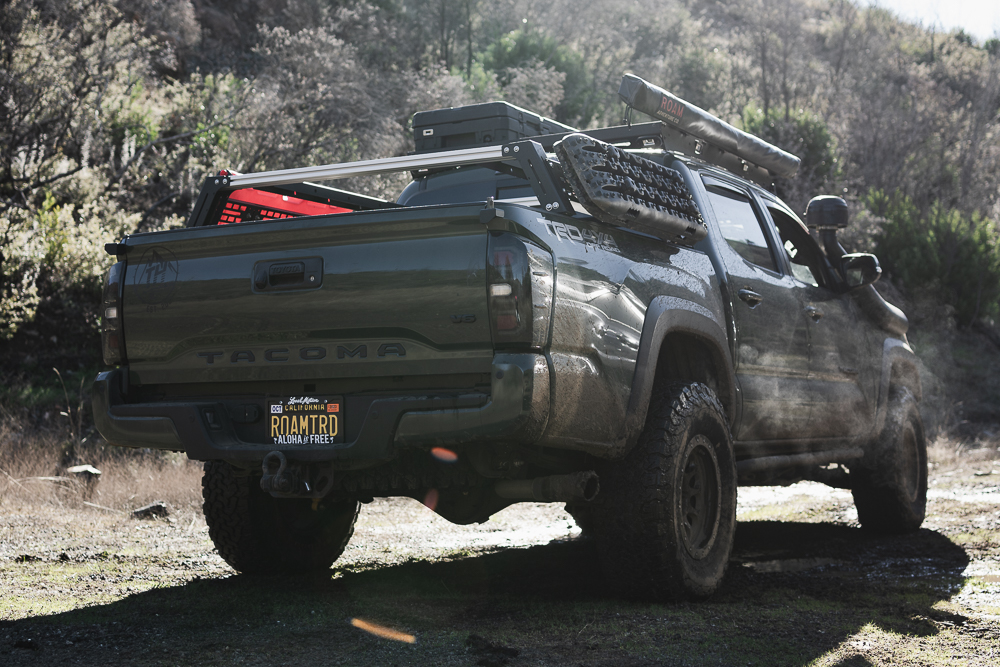
The bed rack, with its two MOLLE panels, has almost infinite mounting options. You can mount gear to the outside, inside, or wherever. It’s great for accessibility but bad for security (more on that later).
Unlike most racks with only two crossbars for a RTT, the Cali Raised option has two additional vertical bars for even more mounting options. Keep in mind that anything mounted on the inside face of the MOLLE panels or crossbars will require you to either crawl into the bed or do a big reach to get to what you need.
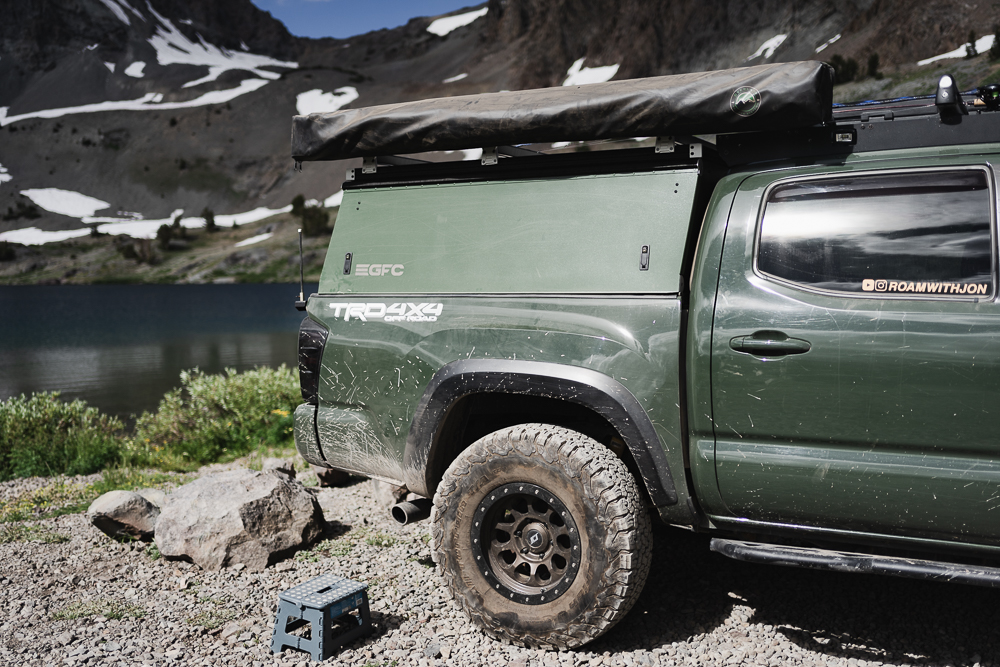
The mounting options on the GFC Topper are a bit different. There are mounting points along the aluminum skeleton inside that are drilled out for mounting gear, MOLLE panels, or bags. GFC also has its optional “Beef Bars” that can be added to the roof for even more storage options.
Along the entire upper trim/edge, there are t-tracks where you can mount additional gear, lights, or whatever else to fit your needs. Since the side panels can fully open, your gear is pretty accessible no matter where you mount it.
Weight Capacity
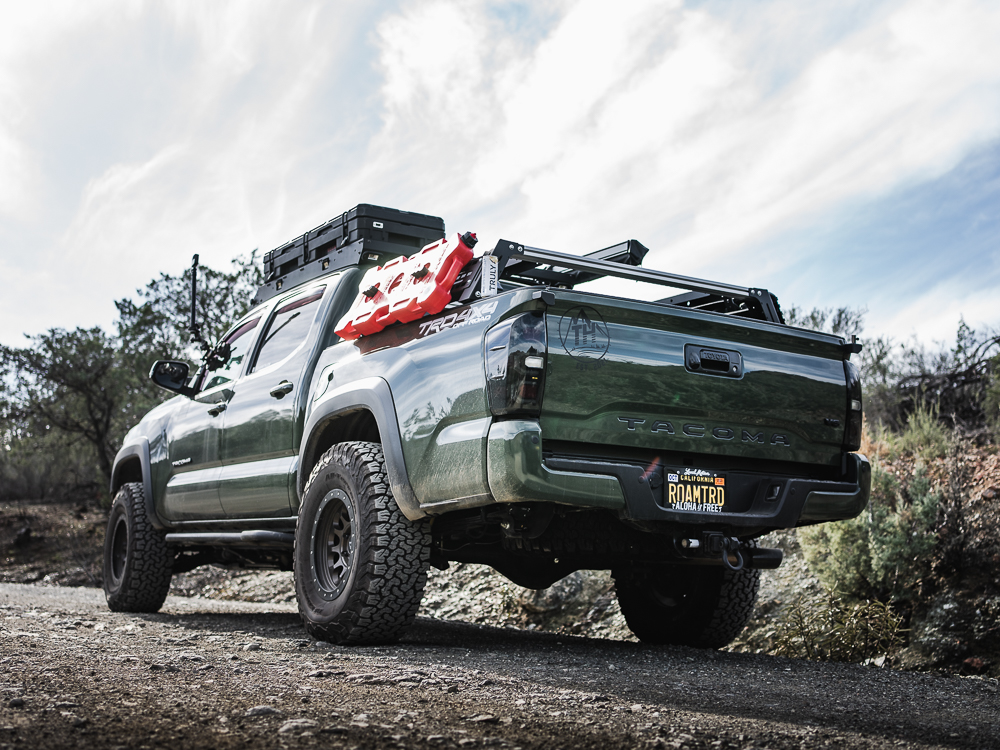
Cali Raised states that their rack can support up to ~1100 lbs of static weight. That’s more than enough for a RTT and gear.
The GFC Beef Bars are rated for 200 lbs. per bar (800 lb. max), however, the skeleton itself is rated for much more weight. GFC even put an old, heavy truck on top to demonstrate its strength. But putting that much on the roof is not really realistic, or comfortable.
Protection & Security
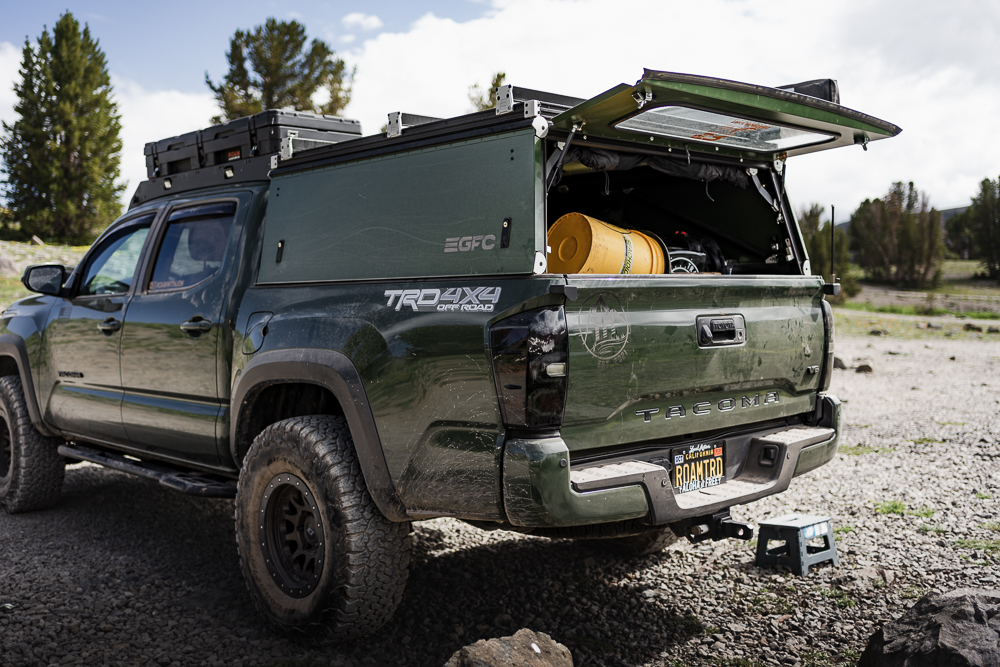
Unsurprisingly, an open bed rack doesn’t protect your gear from anything, whether it’s the elements or theft. All it takes is a set of common hand tools for someone to steal your stuff.
Anything inside your topper will be much more secure, not to mention hidden. If you opt for windows, you’ll have maximum protection by limiting visibility for your gear. With a few small modifications like a tailgate gasket, your bed can also be more completely sealed from the elements.
Cost
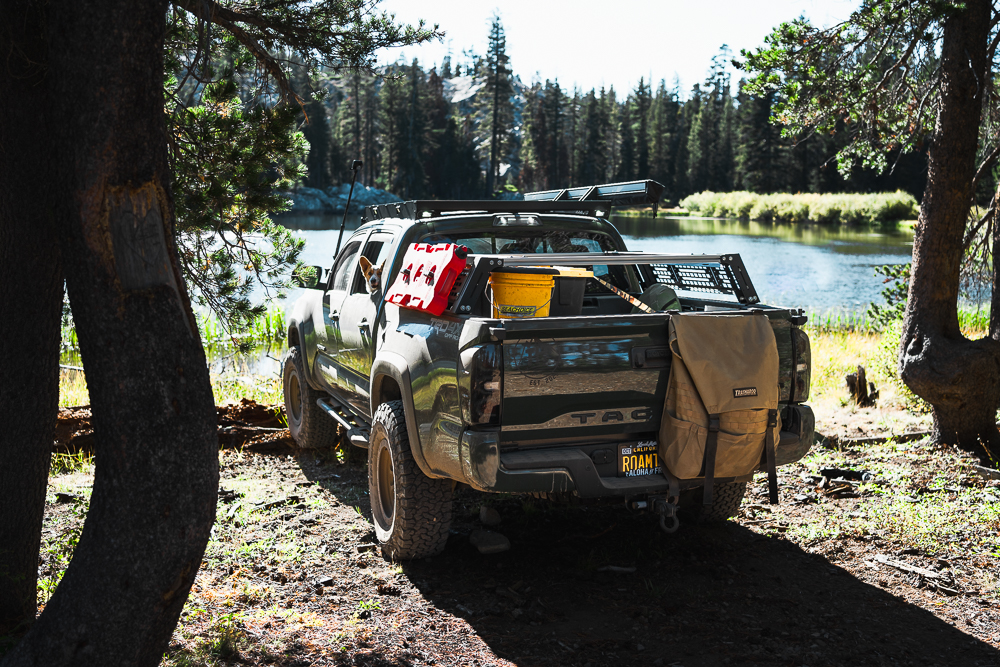
This is a loaded question and most will say that I’m comparing apples to oranges.
The average premium rack comes runs between $800-2000, depending on the size, design and functionality. Whereas my GFC, starts at $4000 and can run close to $7-8000 fully loaded with accessories, and including delivery costs to the farthest dealers from the manufacturing facility. To each their own regarding whether the increased cost is worth it but there’s no denying that the topper provides more features and benefits like secure, covered storage.
For the additional money, I get more security, and an integrated place to sleep. However, this is entirely dependent on your needs and budget.
Final Thoughts
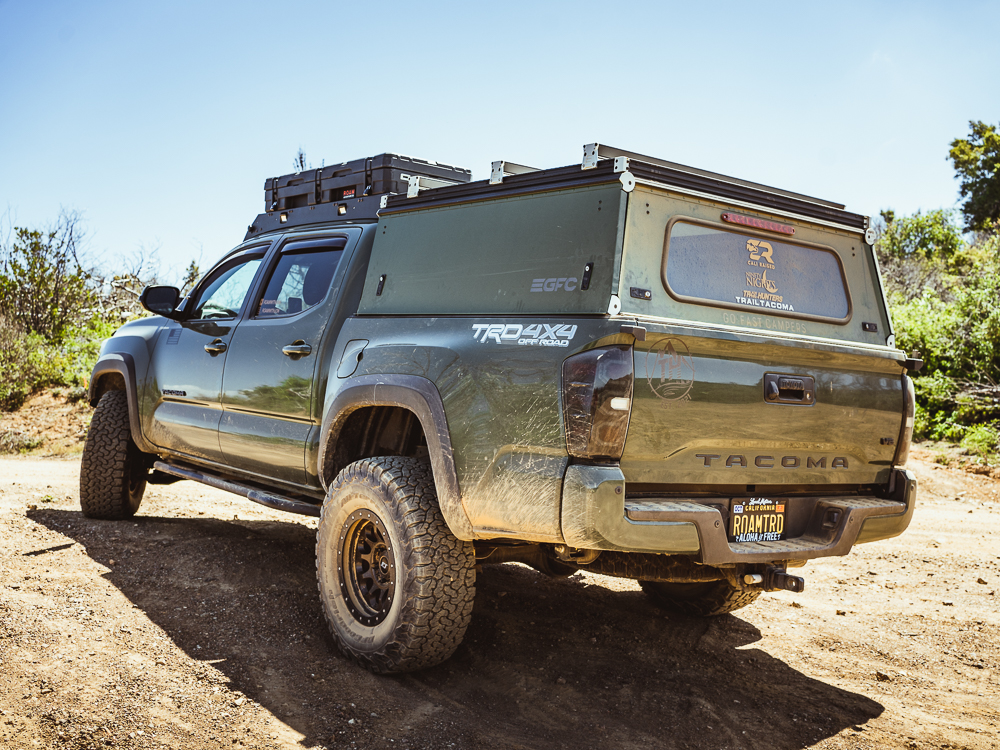
If you have the budget, I would 100% recommend a hard shell like mine. The additional security and more weatherproof storage was the main selling point to me. I’m much more comfortable going into a gas station with all my gear locked away in the bed.
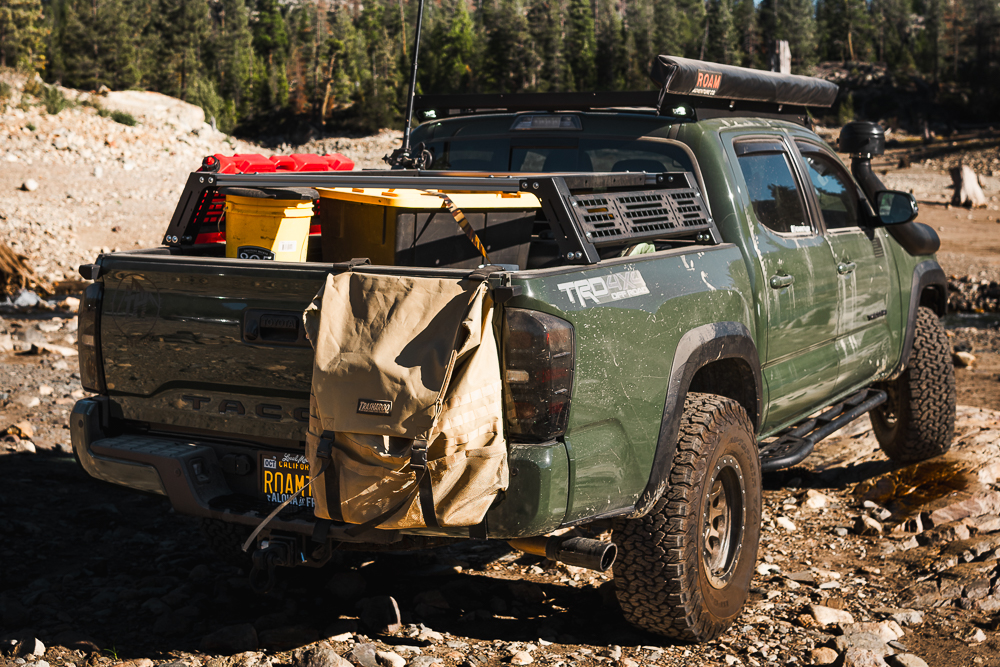
I loved the look of an open-air bed rack, however, the lack of security, and my camping gear getting muddy and dusty from the trail was ultimately what pushed me toward the topper. If those aren’t concerns for you, then this may do everything you need at a fraction of the cost.
I don’t mean to say anything bad about bed racks, because plenty of people run them, but merely explaining the differences. GFC also makes a bed rack, so clearly they see the opportunities with both setups.
If you’d like to learn more or see more examples, be sure to follow @gfc_usa and @cali_raised_led on Instagram and if you happen to be in Northern California, make sure to swing by @stellarbuilt too!
